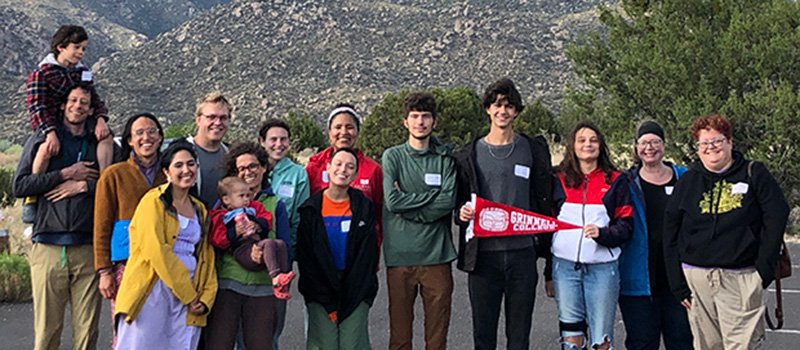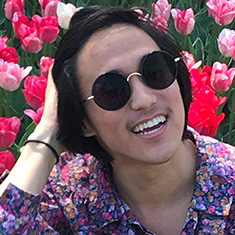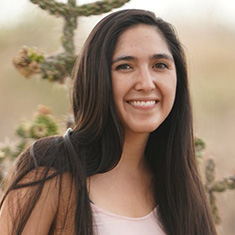Summer Picnic strengthens New Mexico’s Grinnell community
July 20, 2022 — Picnics across the country this summer have connected Grinnellians across generations. That was certainly the case last month in Albuquerque, New Mexico, a region that has not consistently had Grinnell gatherings.
When Sophie Neems ’16, assistant director of young alumni programming, reached out to her former cross country teammates Nate Crail ’19, Cassie Miller ’16, and Toni Androski ’16 with the idea of a New Mexico picnic, they were excited to start planning the event. Glorianne Dorce ’17 soon joined in the planning as well. Unfortunately, Androski, a University of New Mexico Ph.D. student in biology, had an Alaskan summer research trip come up and had to bow out midstream.
A class fund director until this year, Dorce has been an active volunteer for Grinnell.
 Alumni, students, and family members take a group photo June 26 during the Albuquerque Summer Picnic with the Sandia Mountain foothills in the background.
Alumni, students, and family members take a group photo June 26 during the Albuquerque Summer Picnic with the Sandia Mountain foothills in the background.
“I first heard about Grinnell from my grandma Mary, who was in the class of ’71,” Dorce says. “The people I met at Grinnell are what I would highlight about my experience.” After Grinnell, she spent a year in the Jesuit Volunteer Corps as a legal education coordinator through NJ LEEP and is currently at the University of New Mexico pursuing a Ph.D. in chemistry.
The Grinnell-in-Albuquerque Summer Picnic was held on June 26 at the Elena Gallegos Open Space in the Sandia Mountain foothills. Miller, also a Ph.D. student at New Mexico, studying desert ecology with a focus on how to promote recovery from drought, describes the picnic location as “a dramatic, desert-like mountain scape at an elevation of 6,500 feet.”
 Nate Crail ’19
Nate Crail ’19
While the picnic location was not centrally located, the extra driving didn’t keep picnic attendees away. Over 30 people gathered and included graduates spanning five decades. “One alumni family drove in from Taos, which is three hours away,” says Crail, who lives in Santa Fe where they work as a community planner for the county government. “Everyone was just so happy to be at a Grinnell event in the area.”
Coming to Grinnell from the Chicago area, Crail took advantage of Mentored Advance Project (MAP) experiences and did research around the country funded by the College. “I cherished those opportunities,” he recalls. After Grinnell, Crail was accepted into the Peace Corps and went to Guinea to work in agroforestry and food security. Unfortunately, when the pandemic hit, they were sent home, eventually coming to Santa Fe through Americorps.
Distance wasn’t the only factor that the picnic hosts initially feared could deter people from attending. June is monsoon season, and the day of the picnic, there was an 88 percent chance of rain. In New Mexico, Miller understood rain could be grounds for cancelling the event. Two weeks prior, the temperature was over 100 degrees, but June 26 was cloudy and windy, with temperatures in the 70s.
 Cassie Miller ’16
Cassie Miller ’16
“For us, that’s considered cold,” Miller explains. “At the last minute, we decided to bring hot coffee and tea, which helped.” Luckily, it did not rain, people bundled up, and they had a good time.
Along with alumni attending the picnic, three incoming students came with their parents. The hosts enjoyed seeing the first-year students’ excitement in meeting one another. “Iowa is a long distance away, and the students asked us lots of questions about the campus, particularly about the weather,” Crail recalls. Miller gave them tips like how she kept hot water on hand to combat the cold weather.
Hailing from the small town of Las Vegas, New Mexico, Miller appreciated a similar community feel at Grinnell, particularly among her two main communities: the cross country team and the Grinnell Science Project. “One of my fondest memories is when Houston Dougherty (then vice president of Student Affairs), also from New Mexico, would host students from our state and serve roasted green chile and other regional foods.” Her path since Grinnell has included Grinnell Corps in Namibia, working at a water policy fellowship in Sacramento, and doing post-baccalaureate work with algae fuel at Los Alamos National Labs.
The picnic hosts agree that planning this event was easy. They kept in contact with one another and took on different tasks. They appreciated how much the College assisted them, sending out invitations, providing signs, and even sending possible activities including Grinnell trivia. The icebreaker activities weren’t needed after all.
“The conversation was very organic in our group,” Dorce says.
— by Melanie Drake ’92